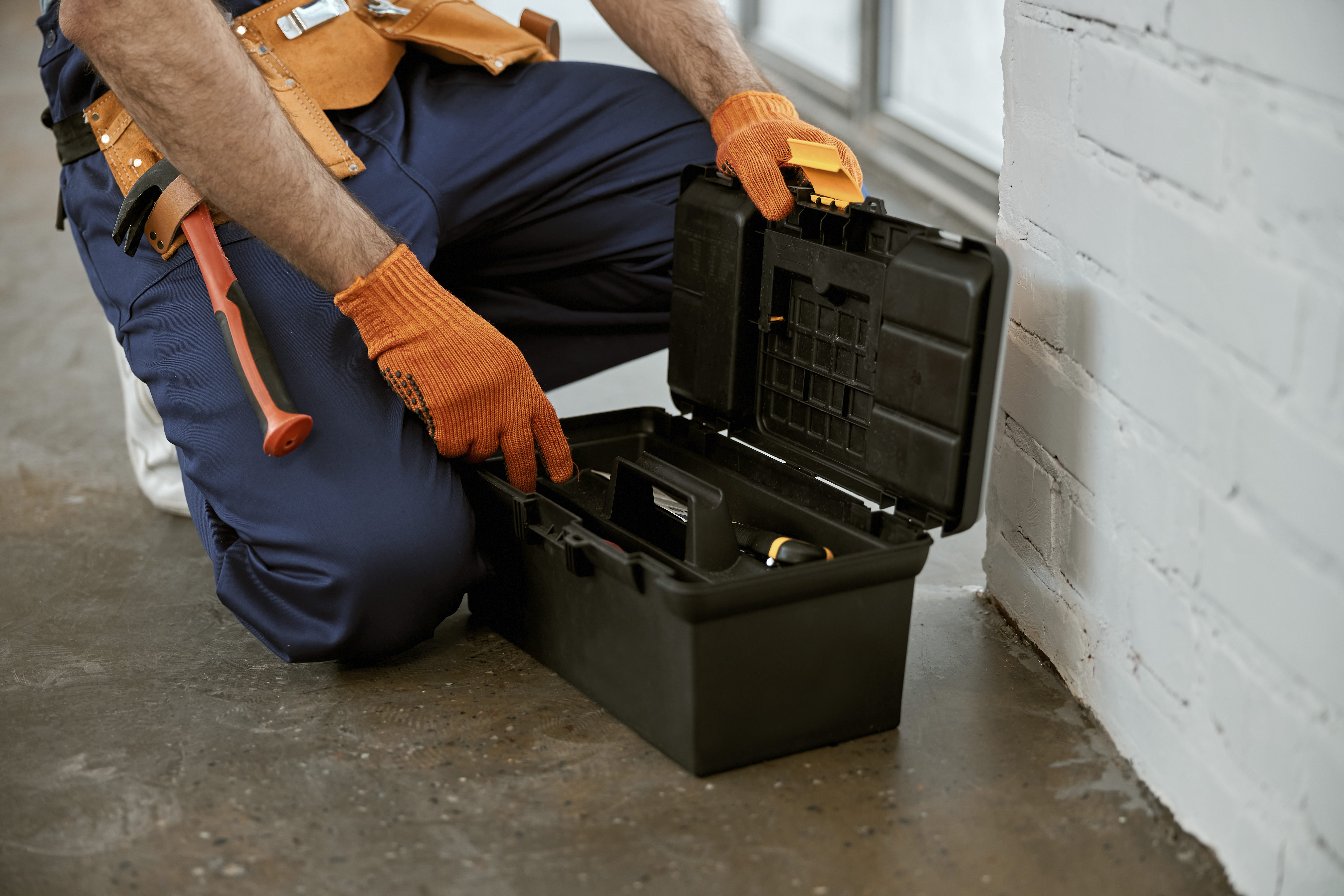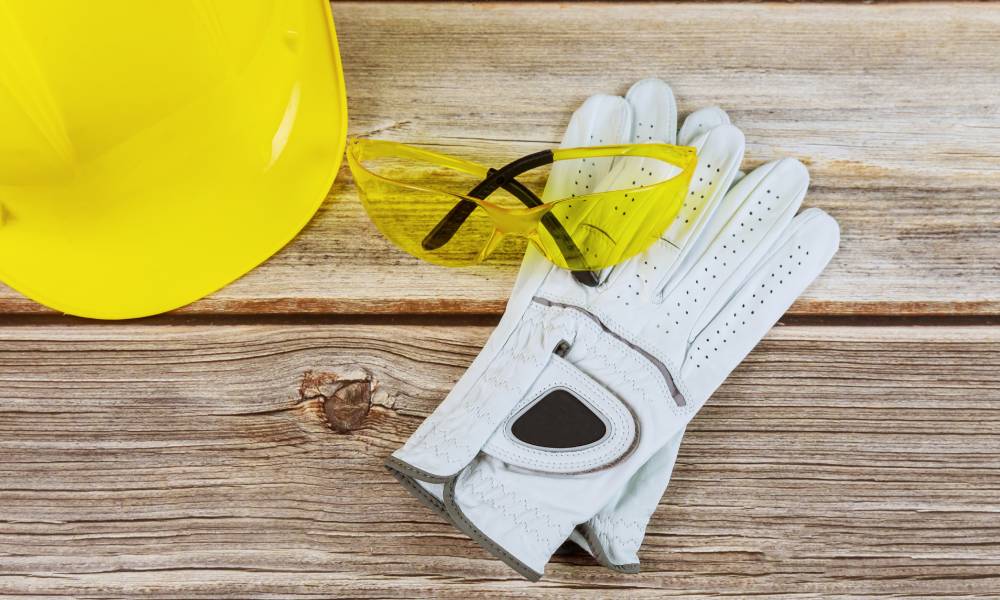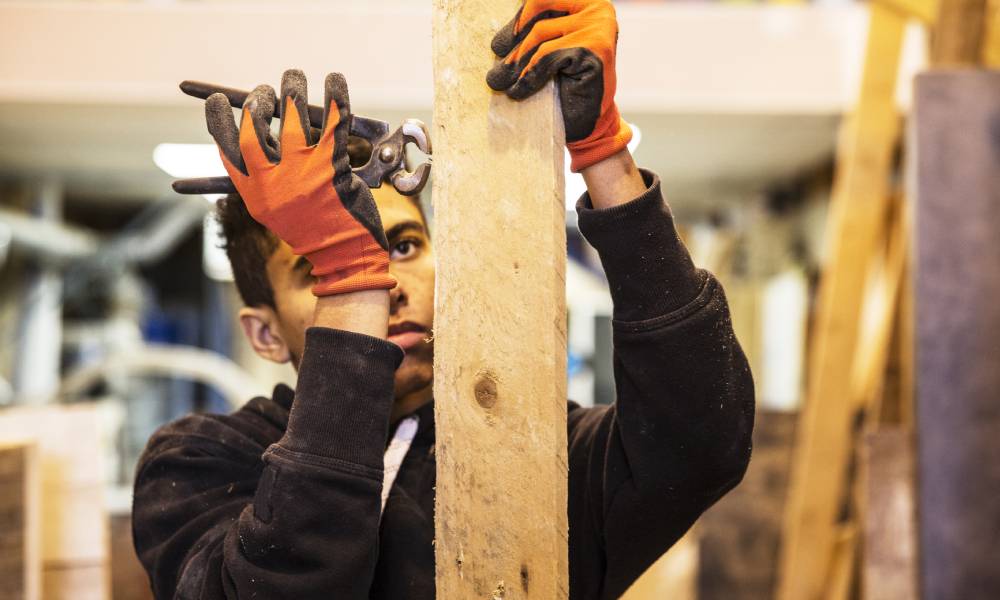
What Are the Usage Areas of Special Purpose Work Gloves?
Special-purpose work gloves are preferred for specific industries and tasks with unique demands. These gloves are engineered to provide targeted solutions, offering enhanced safety and functionality. Let’s examine the usage areas of these gloves to make a more informed work glove selection.
Welding and Heat-Resistant Gloves
Special-purpose work gloves designed for welding and heat resistance are crucial in industries where workers are exposed to high temperatures and molten metal. These gloves typically feature materials such as leather or Kevlar, offering both heat resistance and dexterity. Welders, foundry workers, and metal fabricators benefit from the protection these gloves provide against burns and other heat-related injuries.
Cut-Resistant Gloves for Precision Industries
Industries dealing with precision cutting and handling of sharp objects rely on cut-resistant gloves to mitigate the risk of lacerations and injuries. These gloves, often constructed with materials like Dyneema or Kevlar, provide a robust barrier against sharp blades and tools. Applications range from glass handling and metal fabrication to woodworking and electronic assembly, where precision and hand protection are paramount.
Chemical-Resistant Gloves for Hazardous Materials
In environments where workers handle hazardous chemicals, special-purpose work gloves with chemical resistance become indispensable. These gloves, made from materials such as neoprene or nitrile, create a protective barrier against corrosive substances. Industries such as laboratories, manufacturing plants, and chemical processing facilities rely on these gloves to safeguard workers from chemical splashes and exposure.
Electricians' Gloves for Electrical Safety
Electricians and those working with electrical systems require specialized gloves to protect against electrical shock. Electricians' gloves, often made of rubber or other insulating materials, act as a barrier against electric currents. These gloves are rigorously tested and classified by voltage levels, ensuring that workers are adequately protected when dealing with live electrical components.
Cold-Weather and Thermal Insulated Gloves
For workers in cold climates or industries dealing with freezing temperatures, thermal-insulated gloves provide essential protection. These gloves, often lined with materials like Thinsulate, offer warmth and insulation while maintaining dexterity. Industries such as construction, agriculture, and cold storage facilities rely on these gloves to prevent frostbite and maintain worker comfort in chilly conditions.
Anti-Vibration Gloves for Machinery Operators
Workers operating vibrating machinery face the risk of developing hand-arm vibration syndrome (HAVS). Anti-vibration gloves, equipped with padding or gel inserts, help absorb and reduce the impact of vibrations, protecting against long-term health issues. These gloves are essential in construction, manufacturing, and forestry, where machinery-induced vibrations are prevalent.
Impact-Resistant Gloves for Heavy-Duty Tasks
Industries involving heavy-duty tasks, such as construction and oil and gas, require gloves with impact resistance. These gloves feature reinforced padding and armour on the back of the hand to absorb and dissipate impact energy. Workers in environments with falling objects or crushing hazards might achieve the added protection they need.
Beybi Plastik, since its establishment in 1949; operates in the field of personal protective work safety gloves, examination gloves production and sales, sterile surgical gloves and medical consumables sales and marketing.



